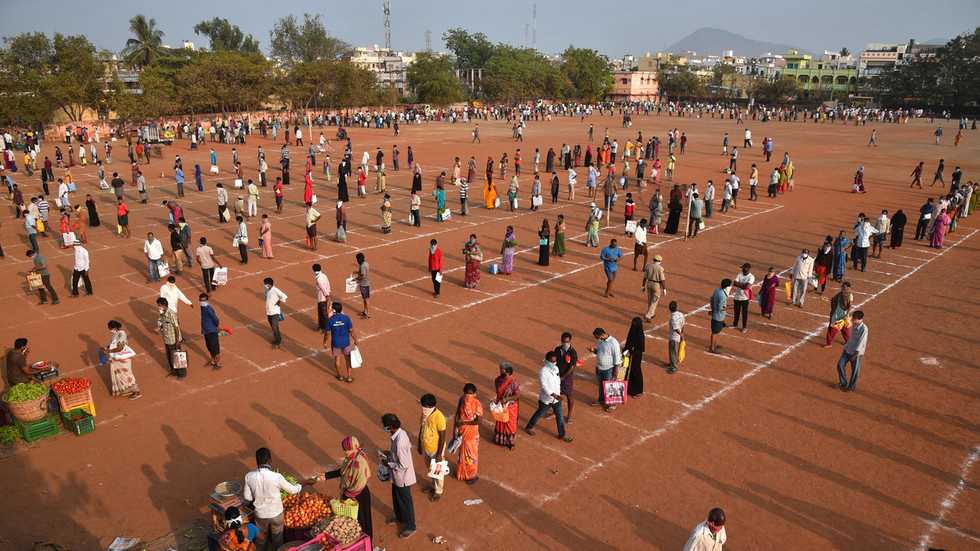The nationwide tally of confirmed Coronavirus cases crossed the 1,000-mark and the death toll reached 29 on Sunday, even as the central government ordered sealing of all state and district borders to check community transmission of the deadly virus by migrant workers and asked those having left already to be quarantined for 14 days.
The national capital alone reported 23 fresh positive cases, taking its count to 72, while more people tested positive in adjoining Noida as also in Maharashtra and Bihar, among other states.
2 ARMYMEN TEST POSITIVE
The new cases included a SpiceJet pilot with no history of international travel and also a doctor and a junior commissioned officer in the Indian Army.
The Colonel-rank doctor is serving at the Command Hospital in Kolkata while the JCO is posted to an Army base in Dehradun.
Sources said the Army has traced all those who have come in contact with the two persons and accordingly they were quarantined. The two are understood to have visited an Army facility near the national capital earlier this month.
The total number of positive cases has increased by 201 in the last 24 hours to reach 1,010 and nine more persons died in this period to take the nationwide toll to 27, according to the latest official figures.
LOCKDOWN DAY 5: NO END TO MIGRANT EXODUS
As the 21-day lockdown entered its 5th day, the exodus of migrant workers from big cities continued unabated, desperate to return to their villages after being left jobless and many of them without food or shelter.
Charitable organisations, volunteers, religious institutions and government bodies including Railway Protection Force fed tens of thousands of people across the nation but many more remained outside the safety net.
POOR FEAR HUNGER MORE THAN VIRUS
A panic-like situation emerged due to mass exodus of migrant workers from various parts of the country, including the national capital, Maharashtra and Kerala, where a large number of people came out of relief camps and demanded being allowed to go to their homes.
A migrant worker reportedly died of a heart attack in Uttar Pradesh after walking more than 200 km on way to his hometown in Madhya Pradesh from Delhi.
“People are talking about the danger of some virus which can kill all of us. I don’t understand all these. As a mother, I am pained when I cannot feed my children. No one is there to help. All are equally worried about their lives,” Savitri, 30, a New Delhi slum dweller, told PTI as she walked along the Mathura Highway carrying her belongings on her head.
“We will die of hunger before any disease if we stay here,” she said, determined to walk 400 km to her village in Uttar Pradesh’s Kannauj district.
Hundreds of migrant workers also gathered again near the Anand Vihar terminus near the Delhi-UP border, hoping to board buses to their villages but they were turned back by police. A large number were seen walking in groups on highways and even on railway tracks.
PM MODI SHARES MANN KI BAAT, APOLOGISES TO COUNTRY
Prime Minister Narendra Modi, in his ‘Mann Ki Baat’ radio broadcast, sought the nation’s forgiveness for the hardships caused by the stringent nationwide lockdown, saying it was necessary because the country was fighting a battle between life and death.
He, however, expressed confidence that “we will definitely win the battle” against the coronavirus menace and praised the front-line workers in this fight against as well as countless workers delivering the essential services.
The government announced some more exemptions to the lockdown by allowing movement of all goods, irrespective of those being in essential or non-essential categories.
